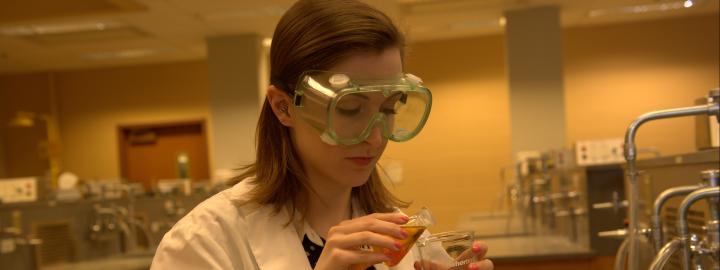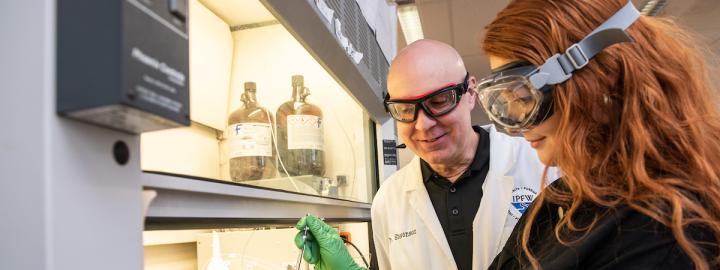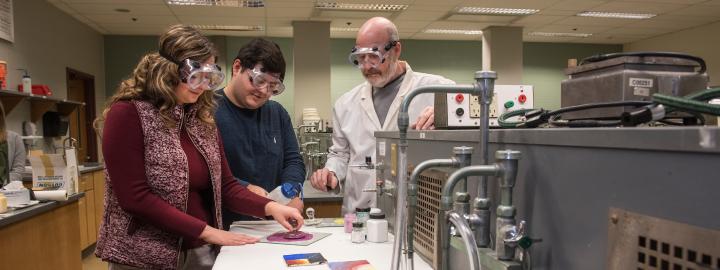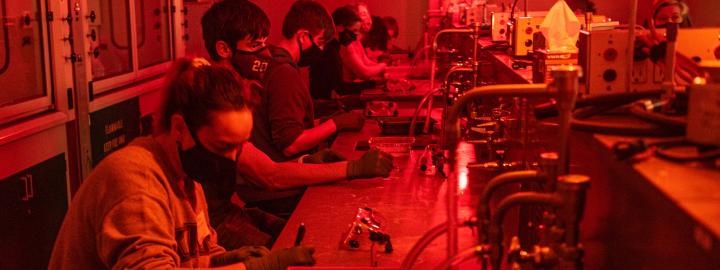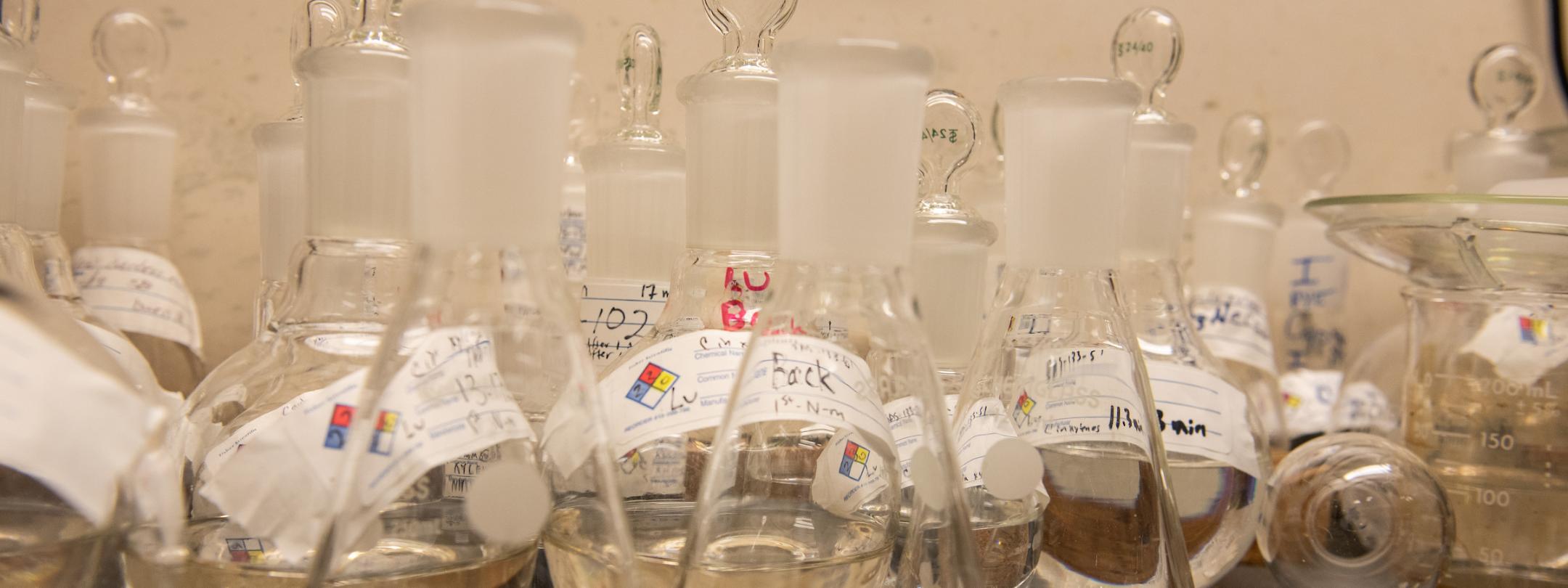
Chemistry and Biochemistry Programs
It takes someone who understands how much matter matters.
Whether you’re looking for a bachelor’s degree, minor, or certificate, the Department of Chemistry and Biochemistry has a program to satisfy your chemistry cravings.
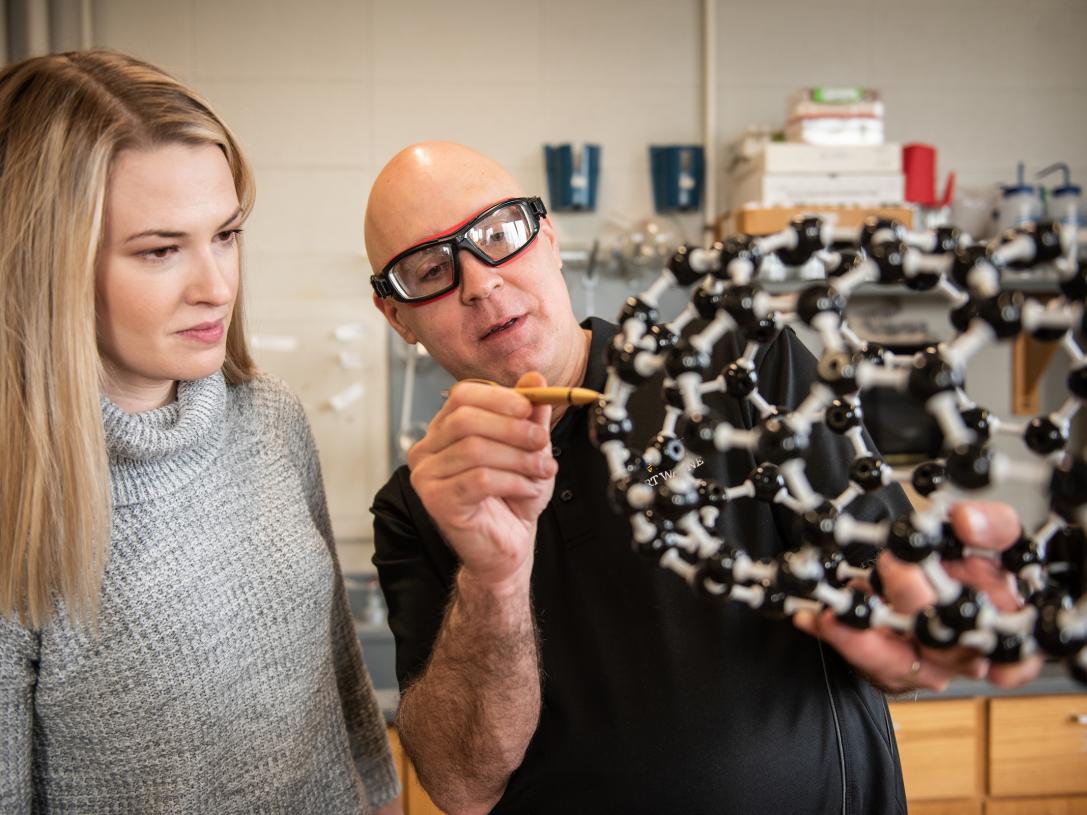
Chemistry (B.S.C.)
Interested in attending graduate school? Want to work for top labs around the world? This is the degree you need. Providing the best preparation for any career involving chemical research, this program fulfills recommendations of the Committee on Professional Training of the American Chemical Society, and all graduates are certified as having fulfilled its requirements.

Program
Highlights
Program Highlights
- The acquisition of scientific and technical knowledge
- The development of analysis and problem-solving skills
- Support from the Mastodon community
- A prestigious Purdue degree
career and salary data
How far will you go?
General labor market and salary data are provided by Lightcast via O*NET and may not represent the outcomes experienced by Purdue Fort Wayne graduates in these programs. Purdue Fort Wayne graduates in these programs may earn salaries substantially different or less than the amounts listed. Salary and employment outcomes vary by geographic area, previous work experience, education, and opportunities for employment that are outside Purdue Fort Wayne’s control. Purdue Fort Wayne does not guarantee employment placement, salary level, or career advancement.
Student Learning Outcomes
Upon completion of this degree, students will be able to demonstrate the following learning outcomes:
- Analyze, synthesize, and comprehend experimental and computational data describing the physical universe
- Learn precise measuring techniques as well as careful and meticulous record keeping
- Be proficient in fundamental organic synthetic methods
- Develop independent problem-solving skills as well as the ability to work collaboratively in a team environment on complex chemical systems
- Learn basic tools and concepts for efficient use of chemical literature, including multiple computerized databases
- Ability to analyze sources for relevance and authority and to learn how scientific writings are constructed according to style
- Biochemist
- Crime Lab Analyst
- Dentist
- Environmental Engineer
- Forensic Chemist
- High School Teacher
- Medical Doctor
- Metallurgist
- Museum Conservator
- Patent Agent
- Pharmacist
- Professor
- Quality Control Specialist
- Toxicologist
- Water Scientist
